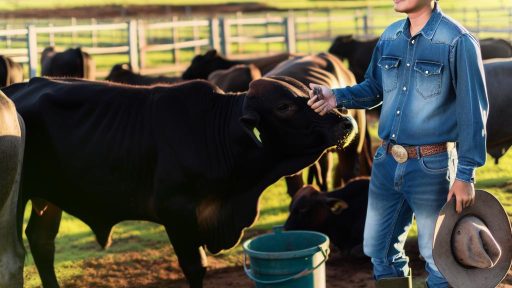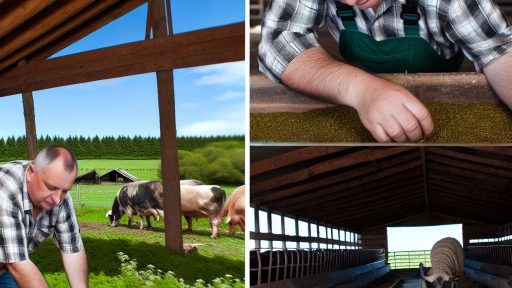Introduction to Exotic Farming and Its Importance in Agriculture
Exotic farming plays a significant role in today’s agricultural landscape.
Farmers cultivate non-native species for various benefits.
This approach diversifies agricultural production and income streams.
Moreover, it fosters local and global food security.
Exotic farming also brings unique challenges and opportunities.
Benefits of Exotic Farming
Exotic species can enhance biodiversity in agricultural systems.
They often require different management practices than traditional crops.
Additionally, exotic farming can boost local economies.
Farmers might find new markets for unique products.
These products may command higher prices due to their rarity.
Challenges in Exotic Farming
Exotic farming also comes with specific challenges.
Farmers must navigate issues of climate adaptability.
Many exotic species may require specialized care and resources.
Additionally, there may be regulatory hurdles to consider.
Understanding local ecosystems becomes crucial for success.
Transform Your Agribusiness
Unlock your farm's potential with expert advice tailored to your needs. Get actionable steps that drive real results.
Get StartedThe Role of Research and Innovation
Research plays an essential role in optimizing exotic farming methods.
Innovations in technology can streamline cultivation processes.
For example, precision agriculture can facilitate better resource management.
Moreover, ongoing research improves disease management strategies.
These advancements ensure sustainable practices in exotic farming.
Overview of Health Management Practices in Exotic Farming
Importance of Health Management
Health management plays a crucial role in exotic farming.
It ensures the well-being of various species raised in captivity.
Moreover, proper health management enhances productivity and profitability.
Specialized care helps prevent disease outbreaks.
Consequently, it maintains overall farm sustainability and animal welfare.
Preventative Health Measures
Preventative health measures are vital in exotic farming.
Farmers should implement vaccination programs to shield animals from infections.
Regular health check-ups help identify potential health issues early.
Quarantine protocols for new animals are essential to avoid introducing diseases.
Additionally, farmers should ensure optimal nutritional practices for their animals.
Monitoring and Assessment
Continuous monitoring is key to effective health management.
Farmers should keep detailed records of animal health and behaviors.
This data assists in identifying trends and potential health risks.
Assessments should include veterinary consultations to evaluate animal health status.
Regularly scheduled assessments can drastically improve response times to health issues.
Emergency Health Protocols
Emergencies can occur unexpectedly in exotic farming.
Consequently, farmers need to prepare emergency health protocols.
These protocols should include immediate veterinary access for affected animals.
Furthermore, it’s important to establish communication plans for emergencies.
Showcase Your Farming Business
Publish your professional farming services profile on our blog for a one-time fee of $200 and reach a dedicated audience of farmers and agribusiness owners.
Publish Your ProfileTraining staff on these protocols ensures a swift response to health crises.
Educational Resources and Training
Education plays a pivotal role in health management practices.
Farmers should stay informed about the latest health research and findings.
Participating in workshops and training can increase knowledge of exotic animal care.
Networking with other farmers provides valuable insights and experiences.
Additionally, collaborating with veterinarians enhances best practices in health management.
Technology and Health Management
Incorporating technology can revolutionize health management in exotic farming.
Farmers can utilize health tracking software to monitor animal welfare effectively.
Remote diagnostics allow for better access to veterinary care.
Moreover, technology can enhance data analysis, informing better decision-making.
Investment in technology ultimately leads to healthier animals and improved farming outcomes.
Common Health Issues Faced in Exotic Animal Species
Respiratory Diseases
Exotic animals often experience respiratory diseases due to various factors.
Exposure to poor air quality can lead to respiratory complications.
Common conditions include pneumonia and lung infections.
Regular monitoring is crucial for early detection of symptoms.
Digestive Disorders
Digestive disorders frequently affect exotic species.
Inappropriate diets often cause gastrointestinal issues.
Symptoms may include diarrhea, vomiting, or lack of appetite.
Consulting a veterinarian ensures proper dietary recommendations.
Skin Conditions
Skin issues are common among exotic animals.
Parasites, allergies, and infections can cause significant discomfort.
Regular checks can help identify skin problems early on.
Use hypoallergenic products to prevent allergic reactions.
Metabolic Disorders
Metabolic disorders are prevalent in exotic species, especially those in captivity.
Obesity and diabetes are particularly concerning conditions.
Providing a balanced diet and encouraging exercise can mitigate risks.
Regular health screenings can detect metabolic issues swiftly.
Behavioral Health Issues
Behavioral health concerns are significant among exotic animals.
Stress due to captivity can lead to anxiety and depression.
Creating a stimulating environment is essential for their well-being.
Engaging activities can reduce negative behaviors linked to stress.
Infectious Diseases
Infectious diseases pose a significant threat to exotic animals.
Viruses, bacteria, and fungi can quickly spread in populations.
Vaccination and proper hygiene practices are vital for prevention.
Regular health checks can identify potential outbreaks early.
Discover More: Sustainable Livestock Waste Solutions For Farms
Preventive Health Measures
Vaccinations
Vaccinations play a crucial role in exotic farming health management.
They protect animals from common diseases and infections.
Farmers must follow vaccination schedules provided by veterinarians.
Regular vaccinations help reduce disease spread within herds.
Showcase Your Farming Business
Publish your professional farming services profile on our blog for a one-time fee of $200 and reach a dedicated audience of farmers and agribusiness owners.
Publish Your ProfileFor example, avian species require specific vaccines yearly.
Biosecurity Protocols
Implementing biosecurity protocols is essential in exotic farming.
These protocols help prevent disease introduction and spread.
Farmers should limit access to their farms to authorized personnel only.
Use disinfectants on footwear and equipment to maintain hygiene.
Moreover, monitor incoming animals for signs of illness.
Education and Training
Education is vital for farm staff regarding health management.
Training should cover biosecurity measures and vaccination procedures.
Workers need to understand the importance of their roles in health management.
Regular workshops can enhance knowledge and compliance.
Effective training leads to healthier animals and better farm productivity.
Monitoring and Record Keeping
Maintaining accurate records of vaccinations is critical.
Farmers should track each animal’s health history systematically.
Regular health checks help identify issues early.
Use the collected data for improving future health practices.
Monitoring also supports compliance with industry regulations.
You Might Also Like: Biosecurity Measures For Livestock Housing
Nutrition and its Role in Maintaining Exotic Animal Health
Importance of Balanced Nutrition
Balanced nutrition is essential for exotic animals in farming.
It supports optimal growth, reproduction, and overall health.
Additionally, proper nutrition enhances their immune system.
Farmers must understand species-specific dietary needs.
Key Nutritional Components
Protein plays a crucial role in animal development.
Carbohydrates provide necessary energy for daily activities.
Fats are important for healthy skin and fur or feathers.
Vitamins and minerals further support bodily functions.
Specialized Diets for Different Species
Each exotic species has unique dietary requirements.
For instance, reptiles may need more calcium.
Birds often require a varied seed mix with fruits.
Mammals might thrive on a high-fiber diet.
Monitoring Nutritional Intake
Regular monitoring ensures that exotic animals receive proper nutrition.
Farmers should observe feeding patterns and body conditions.
Adjustments in diets may be necessary based on these observations.
Impact of Nutrition on Health
Proper nutrition directly affects the health of exotic animals.
Malnutrition can lead to serious health problems.
Farmers should seek veterinary advice for dietary planning.
Balanced diets help prevent weight-related issues.
Utilizing Nutritional Supplements
Sometimes, exotic animals may need nutritional supplements.
These can help address specific deficiencies.
Popular supplements include probiotics and omega fatty acids.
Consulting with a veterinarian before administration is important.
Showcase Your Farming Business
Publish your professional farming services profile on our blog for a one-time fee of $200 and reach a dedicated audience of farmers and agribusiness owners.
Publish Your ProfileAdapting to Environmental Changes
Animal diets may need adjustments due to environmental changes.
For example, seasonal changes can affect food availability.
Farmers should remain flexible and adapt diets accordingly.
Staying informed about nutrition science fosters better health outcomes.
Gain More Insights: Managing Space In Multi-Species Livestock Facilities
Importance of Regular Health Assessments and Monitoring
Maintaining Animal Health
Regular health assessments are crucial for exotic farming.
They help identify health issues early.
Early detection leads to more effective treatment.
Health monitoring enhances overall animal welfare.
Additionally, it helps in increasing productivity.
Preventing Disease Outbreaks
Routine health checks can prevent disease outbreaks.
Diseases spread rapidly among exotic species.
Thus, early intervention is vital in exotic farming.
Establishing a monitoring system is essential.
It keeps track of animal health records effectively.
Compliance with Regulations
Compliance with health regulations is mandatory in farming.
Regular assessments ensure adherence to these laws.
Failing to comply can lead to fines or shutdowns.
Thus, stay informed about relevant regulations.
Monitoring also enhances your farm’s credibility.
Educating Staff and Stakeholders
Regular health assessments provide educational opportunities.
They train staff on recognizing health issues early.
Well-informed staff can take proactive measures.
Share health assessment results with stakeholders.
This transparency builds trust and accountability.
Resource Management
Efficient health monitoring aids in better resource allocation.
Understanding health needs can optimize nutrition plans.
This minimizes waste and reduces costs.
Good health management also impacts reproductive success.
Utilizing resources wisely enhances farm sustainability.
You Might Also Like: Essential Tips for Handling Livestock on Farms

Integrating Veterinary Care into Exotic Farming Operations
Importance of Veterinary Care
Veterinary care is crucial for the health of exotic animals.
This care ensures the well-being of animals and protects farm investments.
Additionally, regular veterinary oversight enhances animal productivity.
Routine Health Assessments
Conduct routine health assessments for all exotic species.
Identify potential health issues before they escalate.
These assessments help establish baseline health metrics.
Veterinarians use these metrics to develop targeted care plans.
Vaccination Protocols
Implement vaccination protocols tailored to specific species.
Vaccines protect animals against prevalent diseases.
Showcase Your Farming Business
Publish your professional farming services profile on our blog for a one-time fee of $200 and reach a dedicated audience of farmers and agribusiness owners.
Publish Your ProfileConsult with a veterinarian to determine the appropriate schedule.
This proactive measure fosters a healthier animal population.
Nutrition and Dietary Management
Work closely with veterinarians to develop proper diets.
Nutrition significantly impacts the overall health and growth rates.
Veterinary nutritionists can provide specific dietary recommendations.
Moreover, monitor animal weight regularly to adjust diets as needed.
Biosecurity Measures
Establish stringent biosecurity measures on the farm.
Limit access to farm areas to reduce disease introduction risks.
Implement sanitation protocols for equipment and personnel.
Regularly train staff in biosecurity practices to maintain standards.
Emergency Care and Response Plans
Develop emergency care plans for unexpected situations.
Ensure every staff member knows how to respond effectively.
Establish relationships with nearby veterinary emergency services.
This preparedness reduces stress during crises.
Continuous Education and Training
Invest in continuous education for staff on veterinary advancements.
Stay updated with the latest practices in exotic animal health care.
Encourage participation in workshops and training programs.
This commitment enhances the quality of care provided.
Case Studies: Successful Health Management in Exotic Farms
Innovative Practices at Green Jungle Farms
Green Jungle Farms specializes in exotic bird breeding.
They implemented a robust health monitoring system.
The system uses regular veterinary check-ups and health assessments.
As a result, disease outbreaks decreased significantly.
Moreover, they maintain strict biosecurity measures on-site.
This practice helps prevent the introduction of harmful pathogens.
Collaboration with Local Veterinarians
Nearby exotic animal sanctuaries joined forces with local veterinarians.
They developed a collaborative health management program.
This program ensures timely vaccinations and treatments for all animals.
Additionally, it promotes knowledge sharing among farms.
Such cooperation enhances overall health standards in the region.
Utilization of Advanced Technology
Advanced technology plays a crucial role in health management.
For instance, automated monitoring systems track animal health data.
These systems alert farmers to any concerning changes.
Furthermore, they integrate data analytics for better decision-making.
Such technology streamlines health management processes effectively.
Community Education and Awareness Programs
Community outreach is vital for successful health management.
Farmers conduct educational workshops on disease prevention.
Attendees learn about proper animal husbandry practices.
Additionally, the workshops emphasize the importance of vaccinations.
This education fosters a culture of proactive health management.
Positive Outcomes and Future Directions
Successful health management leads to thriving exotic farms.
Showcase Your Farming Business
Publish your professional farming services profile on our blog for a one-time fee of $200 and reach a dedicated audience of farmers and agribusiness owners.
Publish Your ProfileFarmers have reported increased animal longevity and productivity.
Moreover, these practices boost the overall sustainability of farming.
The learning from these case studies can inspire other farms.
Future initiatives aim to expand health management programs further.
Future Trends in Health Management for Exotic Farming
Integration of Technology
Technology plays a pivotal role in modern exotic farming practices.
Farmers increasingly adopt precision farming techniques.
These methods enhance monitoring of animal health and welfare.
Wearable devices track vital signs and movements of animals.
Artificial intelligence analyzes data for health predictions.
This integration improves response times to health issues.
Focus on Disease Prevention
Disease prevention strategies will gain traction in the coming years.
Farmers will implement robust biosecurity measures.
Vaccination programs will become more prevalent.
Genetic testing will help identify potential health risks.
Regular health check-ups will foster early detection of illnesses.
Sustainable Practices
Sustainable farming practices will influence health management trends.
Farmers will prioritize eco-friendly feeding and care methods.
Organic farming will increasingly prevent the use of toxins.
Minimizing environmental impacts will also benefit animal health.
Healthy ecosystems support stronger and more resilient animals.
Collaborative Approaches
Collaboration among farmers, veterinarians, and researchers enhances health management.
Sharing knowledge and resources contributes to better disease control.
Interdisciplinary teams will address complex health challenges.
This collaborative model encourages innovation in health solutions.
Focus on Education and Training
Education will remain crucial in exotic farming health management.
Farmers will seek training in the latest health management techniques.
Workshops and online courses will become more widely available.
Empowering farmers will lead to better management practices overall.
Continued education will enable quick adaptation to new trends.
Additional Resources
Animal and Plant Health Inspection Service: Home
Management of Plant and Arthropod Pests by Deer Farmers in Florida




